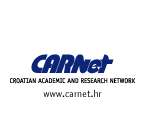

|
||
 |
||
 |
||


| Authors: Sunčana Kukolja Taradi, Milan Taradi, Krešimir Radić, Zagreb School of Medicine, Croatia Reference Center for Self-assessment and Assessment in e-Learning | | Full
paper | Presentation
| |
Abstract
INTRODUCTION.
As the teachers role in web-based education is very different
from the teacher¢s role in traditional education with names as mentor,
facilitator, or supporter being used, the function of assessment and
its related techniques must also change. Web-based assessments need
to be seen as an interactive mentoring opportunity that can be used
in web-based courses. A difference should be perceived between "assessment
of learning" and "assessment for learning". The former
means assessment for the purposes of grading and reporting whereas the
later relates to assessment whose intention is to enable students, through
effective feedback, to fully understand their own learning and the goals
they are aspiring for. Assessment for learning helps teachers and students
to know whether that current understanding is a suitable basis for future
learning. This prospect provides online mentors with the opportunity
to move beyond the beaten phrase that assessment should be used as a
teaching tool and not as an evaluation mechanism. To achieve this, assessment
must now take on a new role. The online assessment techniques should
be based on desired learning outcomes. Then these can be used by the
students to evaluate their own progress through the learning materials
while also providing the tutors with evidence of the effectiveness of
the course materials.
METHODS. A blended (hybrid) course that combines traditional face-to-face and WBL approaches was created by using WebCT courseware tools to provide educational services for an undergraduate second year elective course in acid-base physiology at the University of Zagreb Medical School. The course is designed to require students to work in small collaborative groups utilizing problem solving activities in order to develop topic understanding. WebCT supports multiple forms of quizzes and exams with both fixed questions and questions randomly selected from a question database. Using the tools we created several test types: a diagnostic pre-test, 26 formative self-tests and quizzes with immediate feedback, as well as a final summative test. Students submitted their answers electronically and received instant feedback on their performance. In addition to multiple-choice questions, true/false, matching, calculated, short answer, and written paragraph questions were used.
RESULTS. The population of the study consisted of 37 second year medical students enrolled in a hybrid face-to-face/web-based and problem-based elective course of acid-base physiology at the University of Zagreb Medical School. Students who achieved a high score in the final summative examination completed on average two times as many formative assessment items and achieved a higher score for formative tests than students who did poorly.
CONCLUSION. The improvement discussed in this paper relates to students using web applications that can be embedded into the assessment activities so that more interesting and challenging problems can be presented to students in an online format. Assessment is an integral part of teaching and learning because students need to know how they are getting on. It is a learning experience for students and can achieve a considerable degree of improvement in student learning if used appropriately. The use of immediate feedback, making students aware of what they do not know, increases understanding of the material. Also, successful completing of assessments gives students a satisfying feeling of accomplishment thus providing extrinsic and intrinsic reinforcement for effort and helps students develop a positive expectation for successful achievement. With an appropriate organization of assignments and formative assessments instructors can have students engaged in doing, rather than just passive experiencing or reading. By having student's record progress toward their goals, the motivation to become an independent learner can be enhanced. In this sense formative self-assessment with automated marking and immediate feedback can have an important impact on student motivation. Formative assessment supports learning and assists students to develop the skills necessary to become lifelong learners. Assessment is important because students learn what is assessed. They generally consider that topics assessed are the most important, both intellectually and for the purpose of achieving better marks. The ability to accurately assess one’s strengths and weaknesses is critical to the enterprise of lifelong learning. Thus, the unique features of web-based instructional environment open up a new frontier for online instructors to practice a more student-centered pedagogy.
Acknowledgement
The study was supported by the Croatian Academic Research Network (CARNet).
Biography
Sunčana Kukolja Taradi is
assistant professor of physiology and immunology at the University of
Zagreb Medical School. In 1996. she started a web-site "Interactive
Physiology". The site was rewarded with the second price by the jury
of the Croatian Academic Research Network(CARNet) Users Conference CUC99.
The site was also included into 100 best croatian web sites in the year
1999 by the PCchip magazine. Since 2001 she is the chef-editor of the
official web-site of the Medical school in Zagreb (www.mef.hr) .
She is teaching graduate and postgraduate students about online education
and telemedicine.
In cooperation with CARNet, Suncana Kukolja Taradi created a distance
learning project "Interactive educational module of acid-base balance
in humans". She is the chief-editor of the Referal centers web.
Milan Taradi is a professor of
physiology and immunology at the Faculty of Medicine in Zagreb. He is
the author of numerous online educational materials and interactive
tools in the field of physiology and immunology (www.mef.hr/~mtaradi/)
as well as the main collaborator on the "Interactive Physiology".
He is teaching graduate and postgraduate students about online education
and telemedicine.
Milan Taradi is a co-worker in the project "Interactive educational
module of acid-base balance in humans" sponsored by the Croatian Academic
Research Network (CARNet), and in 2001 he has been appointed to the
function of CARNet coordinator for his institution. He is the leader
of the Reference center for self-assessment and assessment in e-learning.